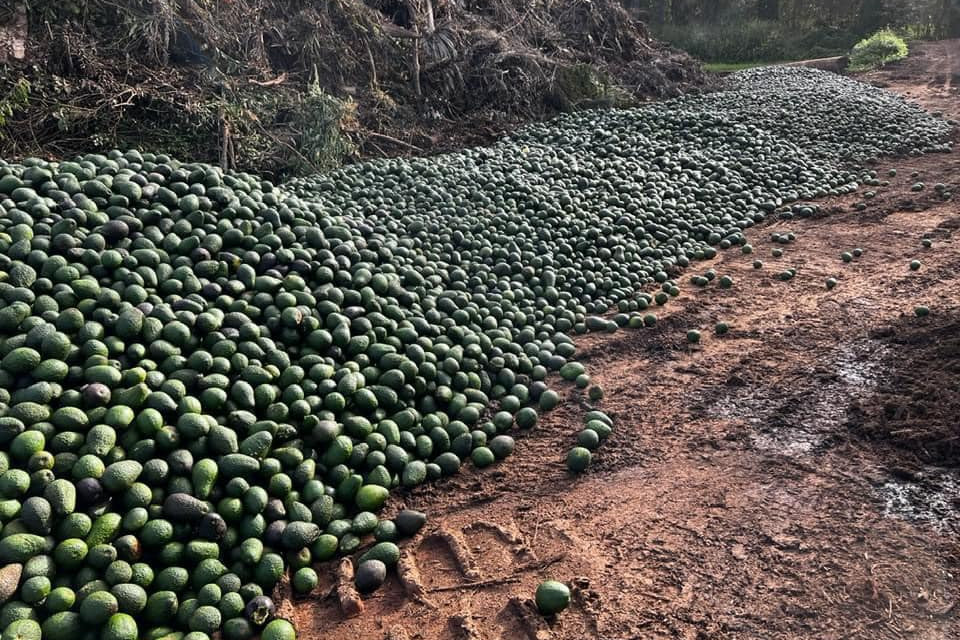On The Land
20 May, 2022
Avocado dumping reflects growers’ situation
A COMBINATION of increased supply, higher input costs, staff shortages and a Covid-impacted tourism sector have combined to produce a new low point for Atherton Tablelands avocado farmers.

The industry hit the headlines last week when local resident Jan De Lai reported seeing trucks dumping tonnes of the super food in the green-waste facility of the Tablelands Regional Council Transfer Station.
Avocado grower and North Queensland Avocadoes director Jim Kochi said last week's disposal of fruit resulted from a lot more damaged fruit than expected passing through a local packing shed.
“Fruit dumping to maintain quality standards is a common industry practice, but it normally happens on-farm. This time it was just done more publicly,” he said. “There are 110 avocado growers producing five million trays of fruit each year on the Tablelands and customer expectations of fruit quality have become extremely high. “The 2021 industry returns were below production costs and proceeds have declined further since then, making the cost of packaging and transporting below premium class avocadoes to market unviable. Farmers have to be careful not to spend more that they can make in their businesses at the moment.”
Howe Farming, the region's largest horticultural employer and one of the area's largest diversified farming operations, had also been hit hard, according to general manager Kim Mastin who has described the last six months as the “roughest” avocado season their company had ever experienced. “We have 600 staff on our books, but only 400 are turning up on any given day, leading to staff burn-out on top of staff shortages. Between the crash in product prices and huge increases in input costs such as fertiliser, freight and herbicides, we haven't broken even during the recent Shepard avocado season,” she said. “Last year we were getting $26 a tray for our Shepards and that fell to $16 - $17 a tray during the last few months. The Hass prices have opened fairly strongly at $28 a tray, but there are a lot of them and oversupply will bring prices down rapidly. “The photos being splashed across the media reflect on what we see every day, as we work to provide the blemishfree product demanded by the public. “We are packing thousands of trays daily and 10-12 per cent of them are going into the waste pile as anything less than perfect has to be thrown away.”
A lot of the dumped fruit would normally be sent to various centres around Queensland to be processed into guacamole, but depressed levels of demand and increased supply from a growing body of producers had left that market over-subscribed this year.
“In the past we have given our fruit seconds to farmers to feed to stock, but strict bio-security protocols on farm, combined with Covid-19 restrictions have made that just about impossible at the moment,” Ms Mastin said. “We have over 160ha of land under avocado trees. It is one of the main crops we grow and we strive to do it really well. At the moment we are having a tough season, but we aren't even thinking about not doing this next year. “We will roll onto the next season, making sure we do everything right. We will spray every two weeks, get our fertiliser out on time and keep our staff employed and healthy. “We expect things to stay tough for a while until the additional fruit is absorbed by increased domestic consumption and a broader network of export markets that we are currently working hard to establish. “Our consumers are the most important people in our business and we hope they will support local growers by continuing to buy our avocadoes and make them a staple in their daily diets.”
“Eat fresh and add an avo” was Mr Kochi's advice to the public. “On the upside of the dumping furore, we never could have planned or afforded publicity of this scope for our wounded industry,” he said.
“In a couple of days, I have spoken to journalists from 4BC Brisbane, 2GB Sydney, 3AW Melbourne and the Sunrise television team and received support domestically and from fellow farmers around the world.”


